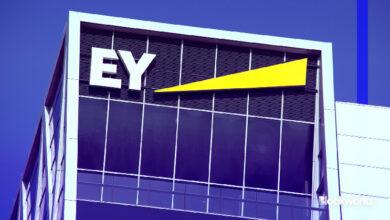Concordium Announces Its First Oracle Integration With Umbrella To Enhance Security Of Web3 Infrastructure

In a significant move to improve Web3 infrastructure security, Concordium, a major player in the Web3 identification domain, has announced its first oracle integration in collaboration with Umbrella. This partnership aims to improve the security and reliability of the platform, marking a crucial move toward its 2024’s roadmap.
Concordium Bridges Blockchain With Reality
Concordium, known for its Zero-knowledge ID framework that enhances the creation of regulation-compliant decentralized applications (dApps) while maintaining a balance of decentralization, security, scalability, and regulatory compliance, has achieved a significant milestone. It has successfully completed its first Oracle integration with the Umbrella Oracle.
Oracles serve as vital bridges in the blockchain market, channeling external information and real-world events into smart contracts and dApps. This capability is essential, as it empowers these applications to function based on real-world data, effectively extending beyond the blockchain’s intrinsic data limitations.
Umbrella 🤝 Concordium
We’re delighted to announce today that we’ll be the first oracle provider to deploy on @ConcordiumNet.
▶️ Concordium’s blockchain is a versatile and compliant platform, suitable for a wide range of enterprise applications and equipped to host a variety of… pic.twitter.com/QRsU4v5GHz
— Umbrella Network (@UmbNetwork) January 17, 2024
Oracles supply trustworthy data, enabling smart contracts to make informed decisions and carry out actions grounded in real-world contexts. This enhances the blockchain’s capacity to interact with and react to external situations, thereby widening its scope and applicability in various real-world scenarios.
Oracles are essential for expanding blockchain applications beyond their inherent data limitations, enabling them to interact effectively with real-world scenarios. This is particularly vital in areas such as decentralized finance (DeFi), supply chain management, and other sectors. Oracles bring external and off-chain data to smart contracts and DApps on blockchains, enhancing interoperability across different networks. They support decentralization by providing data feeds that reduce reliance on centralized sources, thereby bolstering trust and reliability.
Oracles also ensure data security and integrity through methods like cross-referencing and consensus checks. This functionality is crucial across various sectors including DeFi, insurance, and supply chain management. Additionally, some oracles extend their role by issuing native tokens for network participation and incentives.
Umbrella’s position in the Oracle sector, with its integration with Concordium, is set to draw developers and applications towards using Concordium for business-oriented solutions. This synergy is expected to boost the number of transactions conducted on the chain.
Umbrella Network’s Robust Oracle Services Meet Demands
Umbrella Network stands out as a versatile oracle, offering high-quality, customizable data solutions tailored to the diverse needs of decentralized applications (DApps). Its comprehensive data suite includes three main solutions:
- On-Chain Data: This is ideal for lending protocols, vaults, and time-weighted average price (TWAP) needs. It allows projects to set custom deviation triggers and heartbeat intervals, integrating seamlessly with existing oracle systems to minimize changes to smart contracts.
- Data Roll-Up: Utilizing Merkle tree technology, this solution is perfect for projects that require large-scale, scalable data, such as prediction markets or regenerative finance (ReFi) projects. It can aggregate thousands of data points, recording them on-chain under a single unique Merkle root hash.
- On-Demand Data: Designed for options and spot trading decentralized exchanges (DEXs), this solution enables projects to set their own parameters for receiving data.
Beyond its flexible data offerings, Umbrella Network is a community-owned and decentralized oracle. Its architecture allows for the provision of diverse data sets from various industries securely and without centralization. Unlike other oracles, Umbrella’s Community-Run Decentralized Validator Network upholds data integrity and mitigates risks of centralization.
Recognizing the critical importance of data infrastructure in global industries, Umbrella has been designed to avoid control by a centralized entity. Operated by a DAO council in conjunction with a core team, Umbrella prioritizes a decentralized, democratic approach in its project direction and execution, following the core of community governance.





